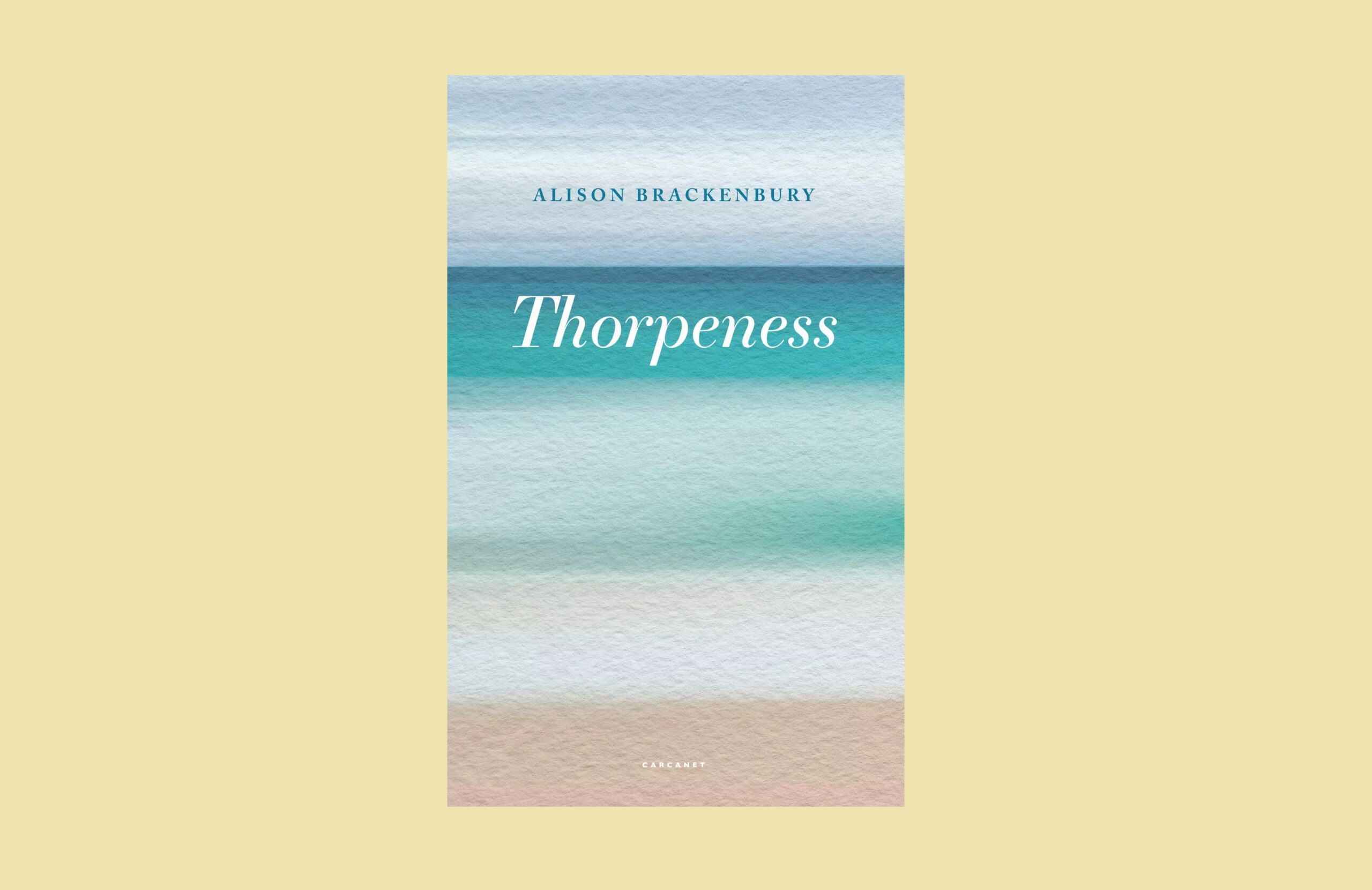Matthew Stewart
Alison Brackenbury’s new collection, Thorpeness (Carcanet Press, 2022), provides a perfect rebuttal to Larkin’s notorious disavowal of a poet’s obligation to develop. This might be Brackenbury’s eleventh full collection, but it does show an indisputable progression.
All Brackenbury’s renowned qualities remain present in Thorpeness, such as her mastery of the lyric voice, her awareness of form, her ear for a line and her coupling of the natural and human world. However, these traits are accompanied by a developing tearing-off of linguistic layers in much of this new work. The artifice of syntax has been removed so as to address the core of meaning, just as the average length of her poems is far shorter than in earlier collections. One such example can be found in the closing lines of ‘6.59’:
…Mist and the blackbird tell me, patiently, how small I sit, how soon vast dusk must drop on sun, how everything I love must stop.
This poem is only ten lines long in all. However, it’s representative of one of Brackenbury’s favoured approaches to versification. All three of the lines in this extract are decasyllabic, the last two built around iambs and with an end-rhyme, while the first provides a gorgeous cadence of two mid-line trochees being framed by a pair of dactyls at the start and finish.
Within the above-mentioned structure, Brackenbury’s sentences are packed with semantic clarity, with a clear-eyed perspective that adds to the power of her poem’s emotional punch: the jarring juxtaposition of the impending end of human life and the continuation of nature. In other words, Thorpeness finds Brackenbury stripping away artifice to face the ageing process and the only possible end of age, setting her narrative thrust in the context of the world around us.
Moreover, the above extract provides one delicious instance of a device that Brackenbury has only brought to the fore of her poetry (especially in the shorter pieces) in the last few years: the forming of a pair between a monosyllabic adjective and its corresponding noun. This pair is aurally generated via assonance, alliteration or half-rhyme. In this case, the example is ‘vast duck’, but other poems in Thorpeness include pairs such as ‘wet heron’, ‘brief bustle’, ‘smudged lovers’, ‘hushed guns’, ‘cold silk’, ‘strong land’, etc, etc.
This use of monosyllabic adjectives ties in with Brackenbury’s aforementioned paring-back of language. Her technique often entails the eschewing of polysyllabic words and multi-clausal sentences, as in the ending to ‘Lost’:
…While my heart grieves wet herons wait, like three grey leaves.
Once more, these lines not only juxtapose a persona’s feelings and elements of natural, while also hinting at life and death via the invocation of grief. Unlike the bald man and his hat, Brackenbury refuses to wear any syntactic accessories or make-up to hide her ageing process. Quite the opposite, in fact: she meets them head-on and forces us to get up close and perceive every detail, as in ‘The Oldest Tree in Mercombe Wood’:
…You are the year. We are the hour. Green in my death, I fear for you.
These monosyllabic words and simple sentence structures again home in on life and death, humans and nature. Of course, an Alison Brackenbury collection worth its salt wouldn’t be complete, without the invocation of horses. Nevertheless, in Thorpeness even this much-loved leitmotif takes on the darker undertones of the passing of time. ‘Going to the Yard on May 19th’ represents an excellent example:
Twenty-three years. Her breath on my neck. Then the vet must come, at half-past ten.
Yet again, these lines demonstrate the poet’s evolving aesthetic via simple, foreshortened sentence structures, all combined with her juxtaposition of a person and an animal for the sake of implicit comparison and contrast, complemented by the presence of impending death. On this occasion, the couplet’s topped and tailed with the explicitly human measurement of time, while the final line cuts to a tetrameter and the poem reaches its devastatingly abrupt conclusion.
As a whole, Thorpeness invites the reader to reflect on how we face and express emotional truths in linguistic terms, whether we flail and reach for hyperbole or whether we remove all accoutrements. Few poets are brave enough to attempt the latter: the personal and poetic risks are high, and any failure is immediately evident. Alison Brackenbury’s achievement lies not only in her courage to make the attempt, but in her skill to pull it off at an age when she could easily rest on her laurels instead of burrowing more and more deeply into the relationship between her life and poetry. But then a proper poet like Brackenbury never stops exploring and pushing their own boundaries.
